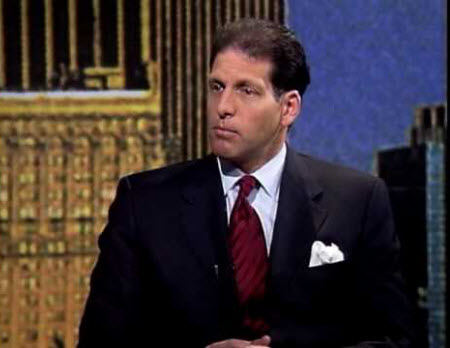Moffett: Verizon-Charter Deal Has Hurdles
The smarter way to stay on top of the multichannel video marketplace. Sign up below.
You are now subscribed
Your newsletter sign-up was successful

ANALYSIS: Verizon Calling Charter: Anybody Home?
As investors continued to try to wrap their heads around the possibilities of a Verizon-Charter merger, influential media analyst Craig Moffett, while not totally dismissing a deal, saw some major hurdles for the latest Deal of the Century to clear.
Moffett, principal and senior analyst at MoffettNathanson and a long-time cable watcher, wrote in a blog posting that while he doesn’t doubt the logic of a Verizon-Charter pairing, he said justifying a deal of the size is tough.
The Wall Street Journal reported Thursday that Verizon chief Lowell McAdam has made a preliminary approach to officials close to Charter about a possible merger.
There are obvious regulatory uncertainties. Even in an expected less onerous environment under President Donald Trump, Charter-Verizon would remove a formidable competitor (Fios, with about 5 million video customers) and would represent a concentration of broadband customers under one roof that would approach Comcast-Time Warner Cable, a deal that was withdrawn after it became clear it would not receive approval.
But that aside, Moffett wrote that while it makes sense for Verizon to lust after Charter’s broadband connection to 17 million homes, it may come at too high a price.
Verizon would have to pay a hefty premium for Charter – Moffett estimates that could mean a deal valued at between $400 and $550 per share. While Charter stock has been on a tear after the news broke – it closed at $333.15 each, up 7.4%, or $22.84 per share on Jan. 26 – Moffett noted that the structure of the deal will also play a factor.
The smarter way to stay on top of the multichannel video marketplace. Sign up below.
Verizon’s quarterly dividend – currently at 59 cents per share – could affect how much stock is used for the deal. And it overall debt leverage, now at about 3.2 times cash flow (Charters is at 4.3 times), could determine how much cash is part of the deal.
“To avoid taking on an unsustainable debt load, a transaction would therefore have to be relatively heavily-skewed toward equity,” Moffett wrote. “Depending on the premium paid, and the mix of cash and stock in the transaction, the leverage of the combined entity could otherwise become unsustainable.”
While the solution to that could simply mean using more equity in the deal, it isn’t that simple for Verizon. Moffett noted that anything less than 50% equity in a deal that values Charter at $400 per share or more would result in leverage of more than 4 times cash flow. But issuing more shares doesn’t just mean diluting the overall investor base for Verizon, Moffett noted. It also means laying out more cash for a dividend.
While leverage limitations argue for a more equity-rich transaction, dividend payout ratios argue for a more debt-heavy one,” Moffett wrote. “There may be no feasible solution that satisfies both of these considerations.”
Moffett offered an example: at a 4 times leverage ceiling and an 80% dividend payout ratio, the number of solutions that fit those criteria is zero.
While one solution would be to cut the dividend, that is usually only used as a last resort and has a checkered history in the cable business. When Bell Atlantic – Verizon’s predecessor company – tried to buy Tele-Communications Inc. – Charter investor John Malone’s former cable holding – in 1994, Moffett noted that the deal was “hailed as strategically brilliant.” But Bell Atlantic stock cratered after the telco said it would have to cut its dividend to get the deal done. It withdrew its offer almost immediately.
Moffett wrote that while anything can happen, especially in the ever-changing regulatory environment in the Trump administration, he thinks the deal is "unlikely."
Some in the investment community have argued that Verizon has been setting the stage for just this type of scenario for years – divesting its Fios assets outside the Northeast and shifting its focus toward mobile video. And they argue that there are several ways to structure a deal, including separately spinning off Fios to help finance the deal.
Others, like Barclays media analyst Kannan Venkateshwar, were skeptical of the urgency for Verizon to do a deal.
Venkateshwar wrote in a note to clients that the only scenario he saw where Verizon had to be a first mover was if it feared Charter would be acquired by another party or that Charter was moving to buy a wireless carrier like T-Mobile or Sprint. He didn’t see any indication that either of those scenarios was imminent.
